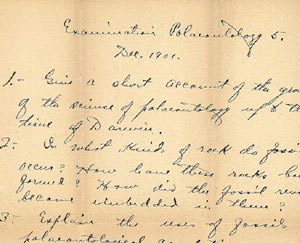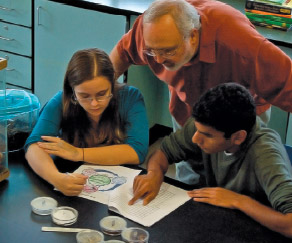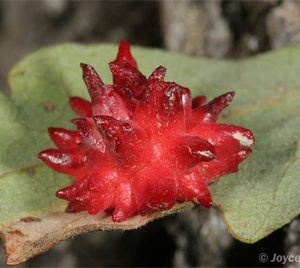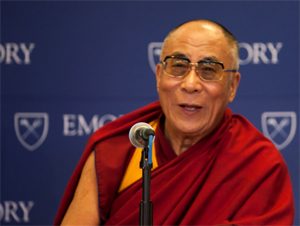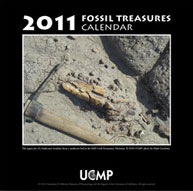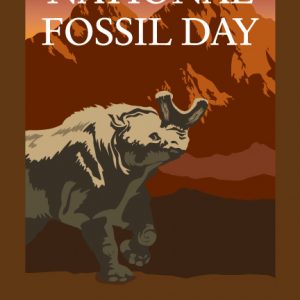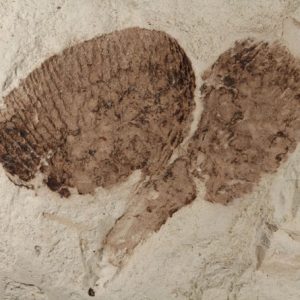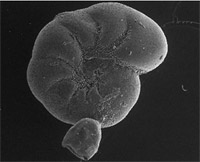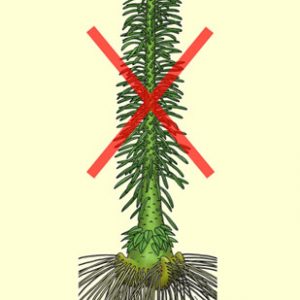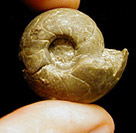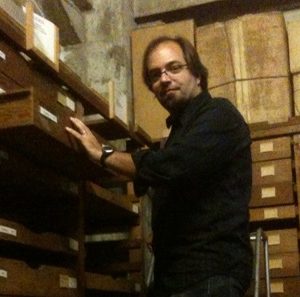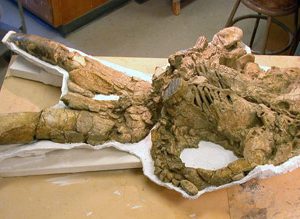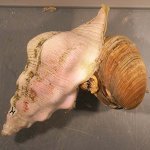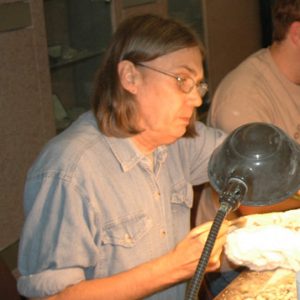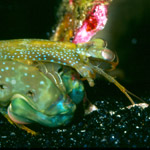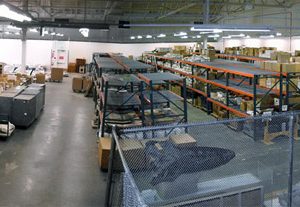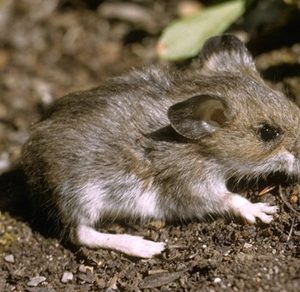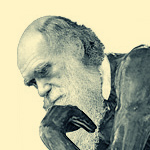We are pleased to announce the receipt of a grant of $236,200 from the Mellon Foundation to catalog our archives The funds are administered by the Council on Library and Information Resources (CLIR) through their "Cataloging Hidden Special Collections and Archives: Building a New Research Environment" program. In recognition that "libraries, archives, and cultural institutions hold millions of items that have never been adequately described," the CLIR awards grants in order to support … [Read more...] about UCMP awarded three-year grant to catalog our archives
Latest News
UCMP websites win a Science Magazine education award
The news is finally out! Understanding Evolution and Understanding Science have won the Science Prize for Online Resources in Education (SPORE) award. The prize honors websites that encourage innovation and excellence in science education. We are proud to have been selected from among hundreds of sites to receive this prestigious award — and we are glad to be able to finally let everyone know about it! We’ve been trying to keep it a secret for almost a year now ... Check out our essay … [Read more...] about UCMP websites win a Science Magazine education award
Upcoming workshop: Insect-induced Plant Galls of California
Insect-induced Plant Galls of California September 18, 2011 Kathy Schick, Joyce Gross, and Diane M. Erwin UC Berkeley Co-sponsored by the Essig Museum of Entomology and the University of California Museum of Paleontology Plant galls provide a fascinating array of color and texture on most of the plants in our California landscape. Galls, growths of plant cells that are not normal plant organs, can be induced by a number of organisms. The most numerous as well as most beautiful and intriguing … [Read more...] about Upcoming workshop: Insect-induced Plant Galls of California
UCMP’s Evo 101 in Tibetan!
Since its launch in 2004, the audience of the Understanding Evolution website has continued to grow, and the site is evolving in response to the needs of that audience. The site now averages more than a million page accesses per month during the academic year, but additionally there is a large international audience that is visiting UE "sister sites." Through partnerships with educational organizations abroad, the UE site is now available in Spanish and Turkish and most recently has been … [Read more...] about UCMP’s Evo 101 in Tibetan!
National Fossil Day at UCMP
Yesterday was the first ever National Fossil Day and UCMP pulled out all the stops! Come check out the new online exhibit, Fossils in our parklands: Examples of UCMP service and stewardship, featuring fossils in UCMP's collection from national and state parks in California, Nevada, Oregon, and Montana. The museum played a pivotal role in the creation of some of the featured parks and we're happy to highlight our shared histories. Additionally, the 2011 UCMP Fossil Treasures Calendar is now … [Read more...] about National Fossil Day at UCMP
UCMP celebrates National Fossil Day!
On October 13, come celebrate the first ever National Fossil Day with UCMP! National Fossil Day is a nation-wide event organized by the National Park Service in partnership with American Geological Institute to promote public awareness and stewardship of fossils, as well as to foster a greater appreciation of their scientific and educational values. It falls during Earth Science Week and we here at Cal have been busily preparing for the festivities! To highlight the museum’s history of … [Read more...] about UCMP celebrates National Fossil Day!
In “Dr. K’s” footsteps: A glimpse of Turkey in the UCMP paleobotany collections
Why would a Swedish paleobotanist go to the UCMP during a cold summer to study a collection of early Miocene plant fossils from Turkey instead of going to Turkey to enjoy a warm summer and great fieldwork? The reason - UCMP is home to a collection of fossil plants made over 40 years ago by Turkey native Dr. Baki Kasapligil (1918-1992). Born in Çankaca, Turkey, Baki was raised in Istanbul – his father was Turkish and his mother from the country of Georgia. As a young man he attended UC Berkeley … [Read more...] about In “Dr. K’s” footsteps: A glimpse of Turkey in the UCMP paleobotany collections
Using foraminifera as environmental indicators after an oil spill
The shells of abundant, tiny, marine organisms known as foraminifera deform when exposed to environmental pollutants. When foraminifera die they leave behind these shells as a record of the conditions through which they lived. A team of researchers, including professor emeritus/UCMP curator Jere Lipps, reported on the usefulness of forams as environmental indicators after studying the impact of the 1978 Amoco Cadiz oil spill on the Brittany Coast. This work was presented on September 7 by … [Read more...] about Using foraminifera as environmental indicators after an oil spill
Museum nomads
For many paleobiologists summer is that part of the year during which data is gathered in its purest form: fossils. Such summers may take you in diametrically opposite directions, though. Some bring broadly boasted outdoor adventures of fieldwork. Others, however, take you deeper and deeper into the collection labyrinths in the dark bowls of natural history museums around the globe. Despite what others may let you believe - and don’t tell anyone we told you - fieldwork is often boring, tedious … [Read more...] about Museum nomads
Hiring for a faculty position in invertebrate paleobiology
The Department of Integrative Biology at the University of California, Berkeley, is soliciting applications for a tenure track position (Assistant Professor) in Paleobiology. The successful candidate will also serve as a curator in the University of California Museum of Paleontology. If you're interested, please read the complete job listing. … [Read more...] about Hiring for a faculty position in invertebrate paleobiology
$25,000 gift to support COPUS
We are pleased to announce the receipt of an unrestricted gift in the amount of $25,000 from The Whitman Institute to support the Coalition on the Public Understanding of Science (COPUS) project. Being involved in COPUS has been an extraordinary experience, but it is not all that easy to explain – probably because it is so simple. It is all about connecting people and ideas and the common thread is sharing science. The idea for COPUS began in 2006 at UCMP with an NSF-funded meeting of a small … [Read more...] about $25,000 gift to support COPUS
Quental and Marshall Feature Article
Congratulations to Tiago Quental and Charles Marshall whose paper, Diversity dynamics: molecular phylogenies need the fossil record, was designated as the featured article in the June 21, 2010 issue of Trends in Ecology and Evolution. When asked to reflect on the importance of the fossil record in our understanding of today’s biodiversity, Tiago responded: Biologists, typically overlook the fossil record when trying to explain how we got to our current biodiversity, in part because for many … [Read more...] about Quental and Marshall Feature Article
Fossils in our own backyard
Museum visitors often ask if our fossils come in from expeditions to remote places. I tell them that some do, but many are found right here in California by local people or via construction projects. For example, our most recent addition to the collections is part of a mammoth along with some other Pleistocene-aged mammals. They were uncovered during the excavation of a storm water retention basin on the campus of Los Positas College in Livermore. Our collection’s next addition of Bay Area … [Read more...] about Fossils in our own backyard
Paleo Video: Snail shell mystery
If you study snails, you’ve got to be patient. But two UCMP graduate students, Jann Vendetti and Scott Fay, used time-lapse photography to kick slow snails into high gear. They discovered some surprising behavior in snails living today—and in snails that lived millions of years in the past. The video features snails of two species: Kelletia kelletii, and Busycotypus canaliculatus (also known as Busycon canaliculatum). This group of animals is so numerous and diverse—in lifestyle, natural … [Read more...] about Paleo Video: Snail shell mystery
A tribute to Dawn E. Peterson
It is with great sadness that I report the passing of Dawn E. Peterson, who succumbed to brain cancer on June 29 at the age of 61. They were truly an extraordinary one-of-a-kind character - a bipolar, transgender, self-taught ostracodologist! As a young person at the University of Minnesota, Don's mental disability surfaced and abruptly ended their first semester. The disorder led them to spiral downward into the darkest realms of life before settling down as a sculptor and marrying. Their … [Read more...] about A tribute to Dawn E. Peterson
Even a mantis shrimp is what it eats
Ask most anyone what butterflies use their wings for or what fish do with their fins and you will undoubtedly hear an answer like, "Wings are used for flying and fins are used for swimming!" Some body parts just seem so well-adapted to perform certain functions; this is why there is a paradigm in biology that "specialized" body parts correspond to specific ways in which animals go about their daily business. In other words, specialization in morphology corresponds to specialization in ecology. … [Read more...] about Even a mantis shrimp is what it eats
The latest UCMP newsletter is now online
Find out even more about what's happening at UCMP by reading the latest online edition of our newsletter. Read about how we've secured important fossil collections by moving them from run-down off-site storage to an immaculate new facility. Find out how UCMP fared at the latest Cal Day. Get an update on the field work of paleobotanist Cindy Looy in Caprock Canyon State Park. Plus a letter from the director, awards, accolades, and more! And if you'd like to receive the UCMP newsletter by … [Read more...] about The latest UCMP newsletter is now online
Global warming and declining mammal diversity: new research in Nature
Popular images of Ice Age California tend to feature enormous, extinct mammals like mammoths and saber-toothed cats. By contrast, new research published in Nature examines populations of small mammals that survived through the end of the Ice Age and how they were affected by the climate change. The research team of Jessica Blois (formerly at Stanford, now at University of Wisconsin, Madison), Elizabeth Hadly (formerly of UCMP, now at Stanford) and Jenny McGuire (UCMP) studied fossilized … [Read more...] about Global warming and declining mammal diversity: new research in Nature
Marine vertebrate paleontology in Half Moon Bay
This week, we welcome guest blogger Robert Boessenecker. Bobby has been interested in paleontology since he was a kid. He grew up in the Bay Area; when he found Miocene shark teeth in the Santa Cruz Mountains, he was hooked. He first got involved with the UCMP when he was a high school freshman — he visited the museum with his dad, to interview UCMP Assistant Director Mark Goodwin for a school project. Bobby is now getting a Masters' degree at Montana State University. He studies the taphonomy … [Read more...] about Marine vertebrate paleontology in Half Moon Bay
Think Evolution II: a summer institute for science educators
Join us at the UCMP for a fun-filled five days of evolutionary explorations with biologists and educators from the University of California. On August 2-6, UCMP and the National Center for Science Education will host a workshop for middle school, high school, and community college biology teachers and science educators. Scientists will discuss their research, covering topics like molecular evolution, developmental biology, and human evolution. Learn how you can integrate cutting-edge … [Read more...] about Think Evolution II: a summer institute for science educators
